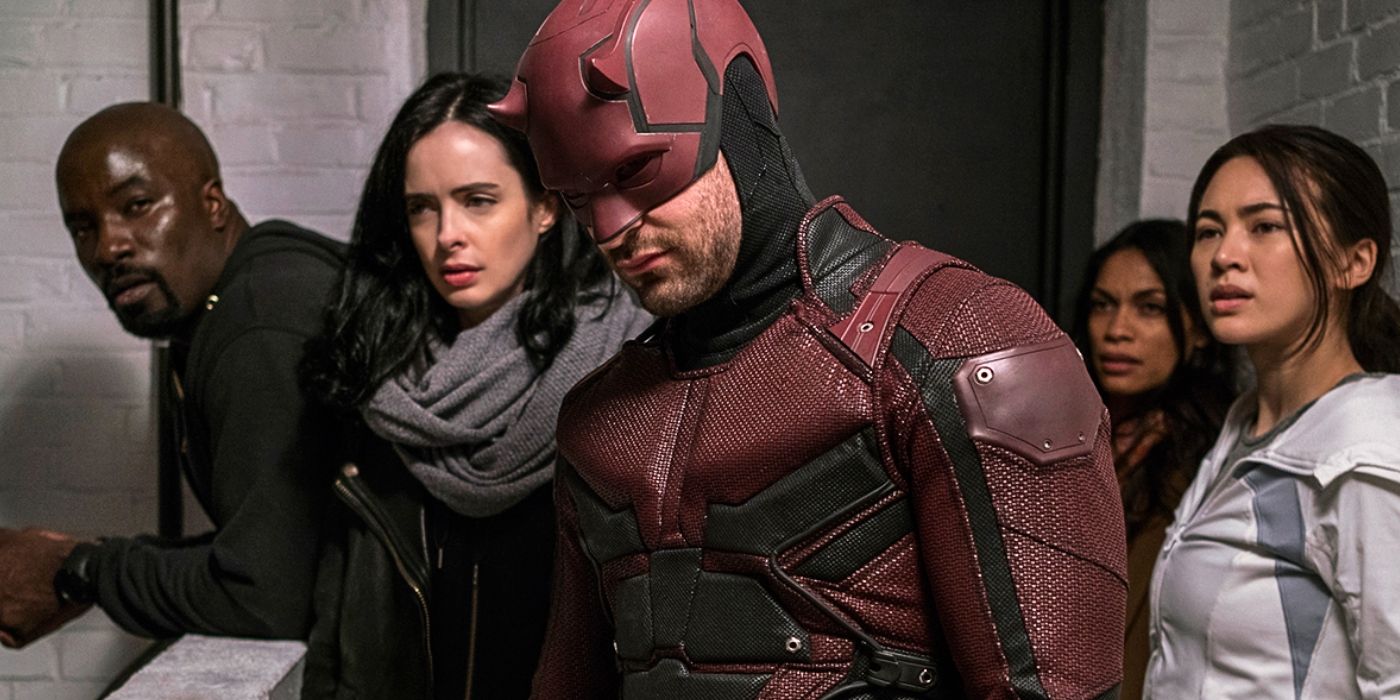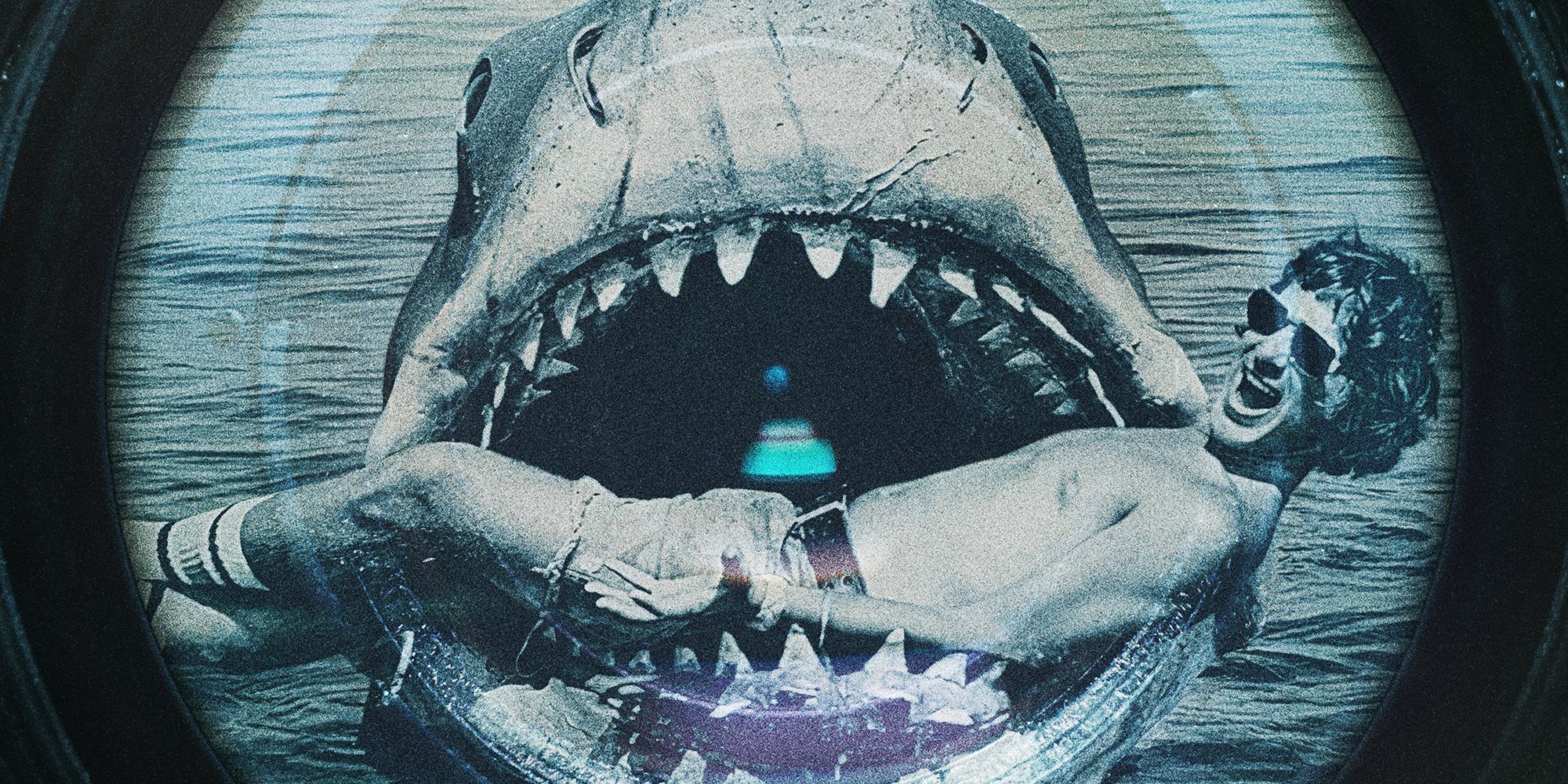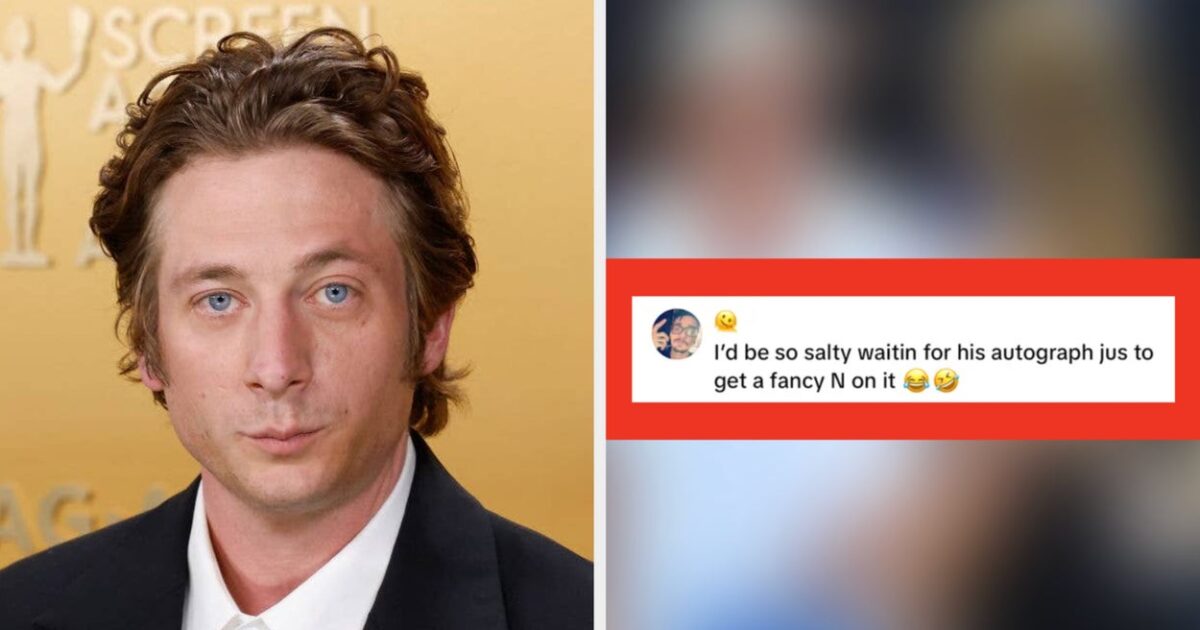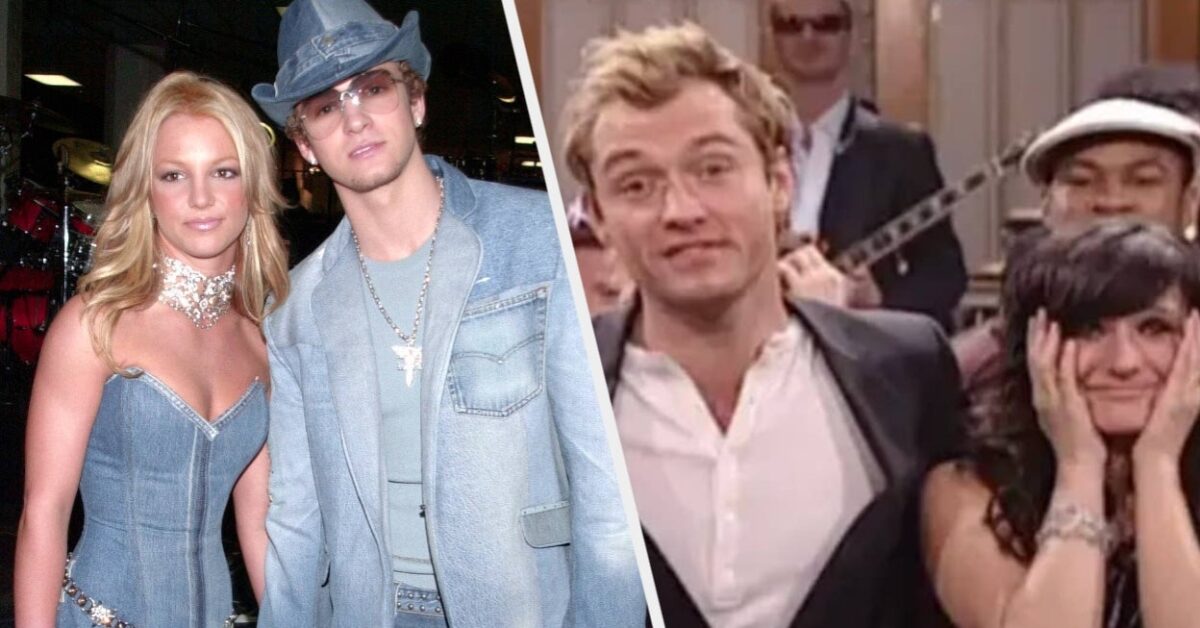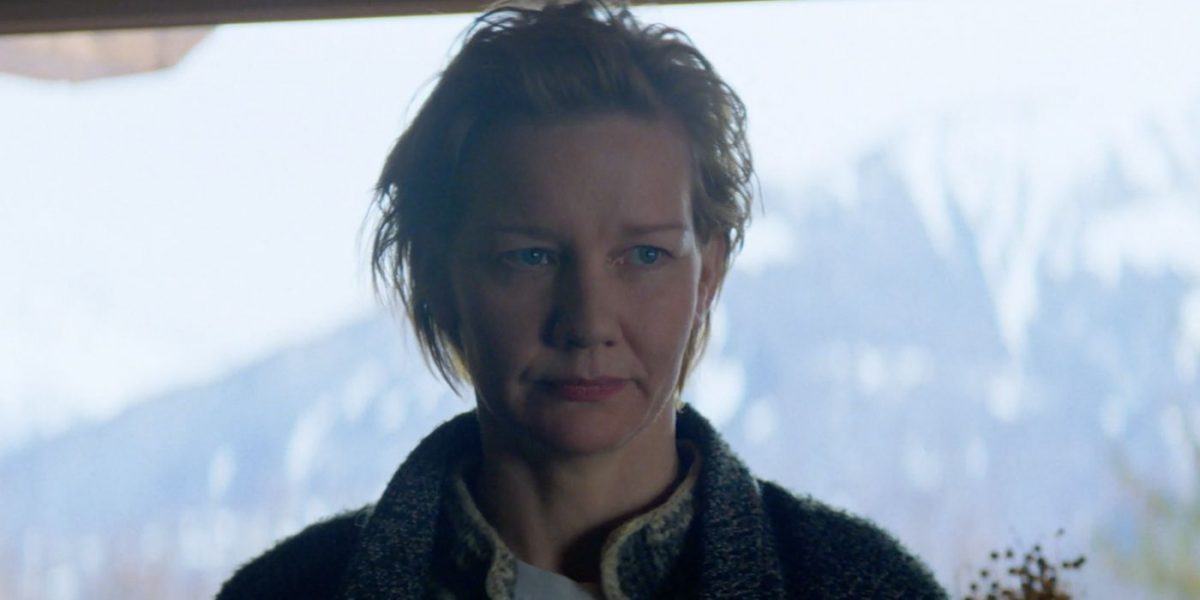
‘Anatomy of a Fall’ Director Juliet Triet & Sandra Hüller on Their Legal Thriller
Oct 14, 2023
The Big Picture
“Anatomy of Fall” is a crime drama that received critical acclaim at the 76th Cannes Film Festival. The movie centers around Sandra Hüller’s character, who finds herself at the center of a trial after her husband’s mysterious death. Director Justine Triet wanted to explore the French courts while avoiding genre film tropes and was obsessive with the editing process.
From director and co-writer Justine Triet, Anatomy of Fall is a crime drama that made its rounds of the festival circuit, beginning at the 76th Cannes Film Festival, and came out on the other end an award-winning feat. The movie stars Sandra Hüller (The Zone of Interest) as a wife and mother at the center of a tumultuous trial for her husband’s (Samuel Theis) mysterious death. In an interview with Collider’s Steve Weintraub, Triet and Hüller discuss working together on the film and maneuvering the French the more “anarchic” French courts.
In Anatomy of a Fall, Sandra Voyter (Hüller), her husband Samuel, and their 11-year-old son Daniel (Milo Machado Graner) live in near seclusion in a small town in the French Alps. Sandra and Daniel’s lives are upended when Samuel is found dead in the snow, having gone over the edge of their balcony, but when the police suspect foul play, the trial that follows brings Sandra’s innocence into question. Maintaining that she had no part in Samuel’s death becomes increasingly more difficult between language barriers and uncovered past marital issues, and the only witness, Daniel, is blind.
During their conversation, which you can read below, Triet talks about why she wanted to explore the French courts while still avoiding “certain tropes of the genre film,” why she was obsessive with the editing process, and how 50 Cent’s “P.I.M.P.” became integral to the film. They talk about how much of the script Hüller was aware of ahead of time, working on her French for the movie, and the conversations they had in anticipation of the audience’s reactions.
COLLIDER: I like throwing a curveball at the beginning. For both of you, if someone has never seen anything you’ve done before, what is the first thing you’d like them to watch and why?
SANDRA HÜLLER: For me, I don’t know. I would let them start at the beginning. My first film was called Requiem by Hans-Christian Schmid, a German film, and I would ask them to watch that.
JUSTINE TRIET: Age of Panic. My first movie, too, because we never leave the same story, the movie, later. The first one is an experience that’s never reproduced again in the freedom that you have of expressing what you’re trying to express without mind to the other’s gaze.
Image via IFC First Take
Sandra, I do have to ask you an individual question. What is it like to be part of two such amazing films in the same year where you get to play two such radically different performances?
HÜLLER: If I only knew how to describe it. It’s really overwhelming. I’m very grateful for it. It’s a once-in-a-lifetime experience, I think, so many things had to go right for this to be happening. I’m glad that people see so many different parts of my work and what I’m able to do. So, that’s really rare. Yeah, I can’t say anything more to that. Sometimes it’s a bit like a dream.
For both of you, you never know when you’re making a movie how it’s gonna actually turn out; you hope for the best. When did you both realize that this was gonna be something special and really resonate with people that saw it?
TRIET: I think at the end of the editing I felt something. It was different from before. People were so moved. It was different, I think. I couldn’t know the scope of the reception I was going to get, but from the editing room and the strength of the reactions of the people that were able to see it in the editing room, [they] were expressing such strong reactions that although I couldn’t predict the scope of the reception, I knew that something was different.
HÜLLER: I think I had that feeling when I read the script for the first time, and it never changed.
Sandra, how much were you ultimately told about the full arc beforehand? Did you know everything before you started shooting or, Justine, did you try to hold a little bit back to make it so as she was playing a scene, it was a little bit more, “Where is this all gonna go?” Or does that really not matter because you’re such a talented actor, you can play anything?
HÜLLER: I’m very happy that Justine is someone who was working in a very transparent way. The whole script was there and we worked with the whole script. We discussed everything. No, there were no secrets except that she didn’t tell me if Sandra did it or not, but that was something I had to find out myself. [Laughs]
Image via Cannes
So, this is what I mean. When you were shooting, when did you get told exactly what—without spoilers—was going on?
HÜLLER: Never. I didn’t know. The conversations we had were more about what kind of feeling we wanted to create around it and what kind of projections from the audience we would have to work with if we make this or that decision. So it was more about the thoughts that were laid on the character from the outside than what she actually did.
Justine, I’m curious, how did you decide on “P.I.M.P.” as the song because I have to know, and did you have to get 50 Cent to sign off on this? Was it ever gonna be another song? It’s a pretty important part of the movie.
TRIET: Yes, I started with “Jolene” by Dolly Parton, and during a long time, it was the song of the movie. I think Sandra read the script with Dolly Parton at the festival. There was a lot of analysis about certain lyrics from Dolly Parton at the courtroom and I was very excited about that. We had to cancel everything because Dolly Patton didn’t give us the rights at the end. So, we switched it to 50 Cent, and 50 Cent was on my YouTube playlist, I think, three years ago. That version was very special for me because, you know, songs are always linked to very emotional things in life, and it was very, very important for me in my life—not for the sense of the lyrics. I thought it was too expensive, but 50 Cent sold the rights to that band and it was not so expensive. So I was very surprised, but it was okay. After, we had to write something about the misogynistic spirit of the song and we were afraid of…we will be free about that, but it was okay. Sorry, I didn’t answer exactly your question. I like very much the mood of the song. It’s light, and it’s not too hype. I like it very much.
Image via NEON
I’m fascinated by the editing process because that’s ultimately where it all comes together. So, Justine, how did the film change in the editing room in ways you perhaps didn’t expect going in?
TRIET: It’s always a big part of my work because I’m very different in editing. On set, I’m very aware, I bring everything, I’m very connected with everyone, like Sandra, in a certain way, but in editing, I’m a different person. I’m very, very, much more, “Okay, I want this and not that.” I have to find the line, you know? And on that movie, I was obsessed by the idea of keeping the subtitle thing on the line about Sandra, if she’s guilty or not. I didn’t want to play the game of the genre movie. I was trying to stay away, very much, from certain tropes of the genre film, such as the kind of duplicitous acting and the kind of self-aware, multilayered performances of somebody thinking one thing and doing another.
So, the question of the music was central. I didn’t want some additional music. I wanted that music to come from the house with the kids and the piano, and it was the same for Sandra. I chose all the most documentary takes from her. She did a lot of different takes on set because I asked her to do very different things. At the end, in the editing process, I was obsessed by very documentary takes. You understand what I mean?
Where, perhaps, not exhibiting too much emotion as she’s saying a line or playing it a certain way because, ultimately, certain takes can give the audience more information than not.
TRIET: Yes, of course. I think it was like a cook, you know? We were obsessed by very [specific] things. It was the first time in my life that I worked like this in editing. [Laughs] It was really, really special because it’s that movie with that story. But it’s always a nightmare and a fairy tale, a nightmare and a fairy tale.
Sandra, like I said before, I thought your performance in this is just so good. When you’re getting ready to play a role like this, can you pull back the curtain a little bit on how you like to get ready for a role? How has it changed through your career as you’ve done more and more work?
HÜLLER: Thank you, first of all. I really don’t know how to talk about it because there is not really a method, and there never was. I basically learn my lines, and I’m trying to make my way through the script so that I would know what’s going on and how I can connect emotionally to what’s going on. I’m trying to think of situations that remind me of something, or something that I always wanted to do and that I wasn’t able to, I wasn’t allowed to, or these things. This case was a bit different because there was so much preparation for the language, and I was working with a wonderful woman…in Paris who was teaching me the French way of speaking—unfortunately, not so much grammar, but I’m working on it—and with this came a lot of, again, reading of the script which I normally also don’t do. I don’t read it so many times. I’m just trying to keep it fresh, and I love to be with my partners more than to be with my imagination when I prepare. So, for me, the beautiful moment is always when we meet, and we find out how this is gonna go. So, it didn’t change so much since I began.
Image via NEON
For both of you, what do you think fans of the film would be surprised to learn about the making of the film if anything?
HÜLLER: There was no snow all the time. Sometimes there was no snow. We had to bring in snow in very important scenes sometimes. That’s really lame to say, but I have no trivia. I don’t know.
TRIET: The dog was always so excited. He was always running, so the dog training part was something that was an interesting experience.
How familiar were the two of you with French courts and the way legal proceedings are very confrontational, and what research was required to accurately bring it all to life?
TRIET: I spent a lot of time in the courtroom when I was younger, so I knew very well all the things inside. I wanted to show the French court, not to imitate some others. And I think in France, yes, it’s very different. Sometimes, it’s much more anarchic than here, and I think it was very interesting to show the reality. I had big help from a French lawyer panelist, who helped me so much with everything to be very real.
HÜLLER: I didn’t know anything about it, and I just completely trusted Justine and Arthur [Harari] that they had all the information that was needed and that they wrote it down properly.
Image via Cannes
Justine, the movie is about two and a half hours, did you have a much longer cut of the film, or was it always your intention to get it around two and a half hours?
TRIET: It was three and a half hours just two months before the end of the editing, so it was one more hour. It was very long before, so I had to cut a lot.
An hour of footage is a lot.
TRIET: Yeah, that first hour was mostly in the beginning. It was before the trial process started, so we had to cut a lot.
Anatomy of a Fall is in select theaters now.
Publisher: Source link
Jeremy Allen White’s Bizarre Autograph Goes Viral
Jeremy Allen White's Bizarre Autograph Goes Viral The Bear star is currently going viral for his autograph. Here is a near-exact replica I did on a sticky pad, but you can see his signing in action here. People headed straight…
May 31, 2025
Why Julie Chrisley Was Absent From Press Conference
"As Savannah said," Todd continued, "she has fought a long fight, and for any parent to see their child fight this hard, it's a double edged sword. It's a blessing, and then your heart breaks because your child has been placed…
May 31, 2025
Cringe ’00s Pop Culture Moments We Can’t Forget
Cringe '00s Pop Culture Moments We Can't Forget No matter how nostalgic you feel, it's hard not to admit that the 2000s were a decade of cringe. Recently, the BuzzFeed Community shared the pop culture moments from the '00s that…
May 30, 2025
The Real Housewives of London Cast Revealed
The Housewives are hopping the pond. Hayu has revealed the first look at the cast of the upcoming reality series The Real Housewives of London—and one costar might look very familiar to Bravo fans. The six England-based stars include Ladies…
May 30, 2025

